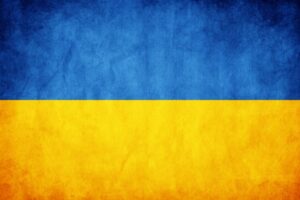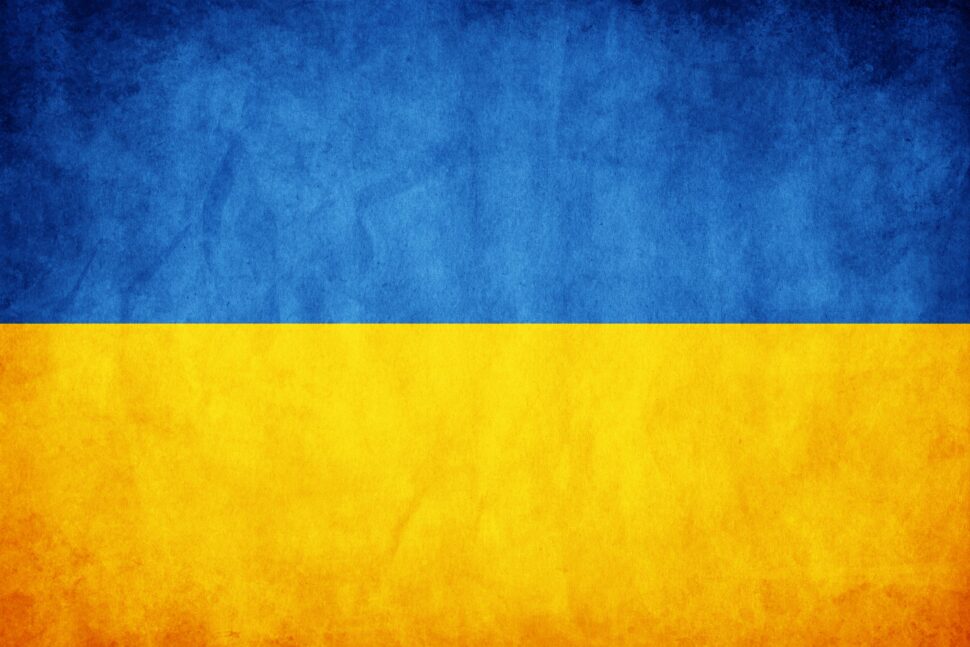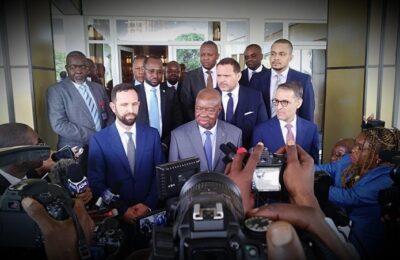
There are three aspects to the war in Ukraine.
First, the war began as a Russian invasion. A large majority of Ukrainians support the resistance by the Ukrainian armed forces. This is a fight for democracy. Invasion is always an act of dictatorship, whether in Ukraine, Vietnam, Afghanistan, Iraq or Palestine.
Putin’s invasion is of a piece with his previous military interventions in Chechnya, Georgia, Kazakhstan, Kirghizstan and Syria. This is part of reestablishing Russian power and influence in the region of the old Soviet Union and the previous Russian Empire.
But Putin is also afraid of the spreading movements for democracy in Belarus and Central Asia. And he is afraid of the growing internal opposition in Russia. Military excursions to solidify internal power are a constant in the history of Putin’s Russia.
A victory for Ukraine would make the movements for democracy in Central Asia and Eastern Europe stronger.
But then there is the second aspect: this is a real war between Russia and Ukraine. But it is also a proxy war between the United States / NATO and Russia.
What this is not is a confrontation between the forces of democracy led by Biden, Scholtz and Macron and the forces of dictatorship led by Putin. What Russia is doing to Ukraine now, the US has done to many countries. Joe Biden supported the American invasions of Vietnam, Somalia, Afghanistan and Iraq. Washington, Paris and Frankfurt have supported the Israelis, the Assads in Syria, the Saudis in Yemen and Sisi in Egypt. The list goes on and on.
The most important climate crime in the world right now is the US economic blockade of Afghanistan. The purpose of this blockade is to punish the Taliban and the Afghan people for defeating the American military. The blockade has turned a serious drought caused by climate change and a massive earthquake into a serious famine.
A victory of Ukraine over Russian invasion would also strengthen the power of NATO and American imperialism in many parts of the world.
The third aspect of the war is political. Putin is the leading figure in the growing global movement of the racist right. Other leading figures include Modi in India, Bolsonaro in Brazil, Trump in the United States, Orban in Hungary, Le Pen in France and Duterte and Marcos in the Philippines. There are many more leaders, in many more countries, that constitute this reactionary international, which is a bullwark for climate chaos.
These are mass movements. They appeal to many working class people in a way that classic fascism never managed to do. In different ways they combine support for capitalism, a passionate hatred of elites, racism, and hatred for migrants, Muslims, Jews, gay men, lesbians and trans people.
They are sexist, patriarchal and openly tolerant of violence, especially sexual violence. Modi presided over mass rape of Muslim women in Gujerat, Bolsonaro and Duterte have spoken tolerantly of rape, Trump is open in his brutality. The mainstream parties cover up rape and sexual harassment, the far right are openly permissive. Putin, in particular, is obsessed with hostility to trans people.
A victory for Putin in Ukraine would be an important victory for that reactionary movement. The defeat and humiliation of Putin would be a defeat for the far right globally.
But there are contradictions everywhere. To take another example, the support across almost all of Europe for Ukrainian refugees has been deeply moving. This support is backed by the same governments who treat refugees from Syria, Iraq, Afghanistan and Africa with appalling racism and cruelty at the same time.
So, it’s not simple and there are no easy answers. We have to understand the contradictions, and not side with any of the leaders of the world. But also, we must side with the invaded, and with popular revolt. In a world spiraling down towards climate change, we must learn to side with every refugee and migrant.
The Environmental Consequences
The rest of this comment is about the global environmental consequences of the war. They are appalling.
First, Biden, the EU and governments all over the world have used the war to argue for far deeper and wider development of fossil fuels – and often of nuclear power too. They have had important success in driving back the momentum for renewables. That means climate chaos will come earlier than expected.
We have to turn that around.
Second, prices are rising rapidly around the world, and the price of wheat, oil and gas
are rising fastest. This threatens economic suffering for billions.
But these price rises do not simply come from the war, as they were already rising before its onset. There are deeper forces at work.
First, the price of energy. Global investment in fossil fuels has fallen for seven years, since 2015. [See IEA World Energy Investment 2021 for the tables.] The reason is the threat of climate change.
Most investments in fossil fuels and power stations take forty years to earn back a profit. Investors understand that when climate chaos gets really serious, governments will change policies and their investments will be stranded.
So investments in fossil fuels have been falling.
Global investments in renewable energy have also been falling since 2017. The reason is that the price of renewable energy has been falling. This seems insane. But this is capitalism.
Sean Sweeney and John Treat at Trade Unions for Energy Democracy explain this contradiction well.
Three things are happening. First, when the price of wind and solar power fell far enough, governments withdrew all subsidies for renewable energy. Then there was no guaranteed profit. Everywhere, investors have pulled back.
Second, now renewables are very cheap. That means profits are also smaller.
Third, renewables require massive new electricity grids. Governments are not investing enough in that.
So fossil fuel investment fell. Renewable investment fell. The result is: total energy investment fell. When demand resumed after COVID, there was not enough supply.
Then the Ukraine war was a tipping point. It has reduced the supply of oil and gas a bit. More importantly, it has made people afraid that prices will rise. With the tipping point, there is much hoarding, windfall profits and speculation. But the deep problem, which might get worse, is insufficient energy.
What we need now is massive government investment in renewable energy all over the world. Immediately, millions of climate jobs. And massive taxation of corporate energy profits in the meantime.
Only governments can do this. They are doing the opposite now, encouraging fossil fuels instead.
Food
The price of food is increasing. Climate change means we can expect the production of grain, and other food, to fall over the years to come, in sporadic and combined fashion. This process has already started for some crops, while for others there’s disagreement among scientists (speculation and land grabs for competing purposes muddy everything). But it is clear that the crisis in the price of grain this year is something that will get worse in the next decade.
Here too, though, the war in Ukraine is a tipping point. It blocks the export of Russian, and above all, Ukrainian wheat. That affects the price of all grain globally.
Then there are the wider price rises. Part of the reason here is many different breaks in global supply chains, especially in China, but also in many other places. Global supply chains cannot be turned on and off easily.
This is not a simple crisis of inflation for economic reasons. It is a crisis of inflation because there is physically not enough stuff. People cannot find enough food, energy and goods.
The rich win and get the supply. The poor lose.
The poor – most of Humanity – need help.
In this situation, we know from generations of experience what happens next. Especially, and most important, what happens in the Global South.
First, food riots. Also riots and protests over the prices of fuel for cooking, for transport and for heating. And riots and protests about everything else in the cascading spiral of capitalist crisis. And strikes in countries with strong trade unions.
What will people demand? What they need. Controls and subsidies on the prices of grains, food and fuel. That is what they have always fought for in such situations.
The Ukraine war shows the evil of Putin. But the price crisis shows the different evil of Biden and the EU.
In June, the US Federal Reserve Bank raised the basic interest rate by 0.75%. That sounds small, but it is the biggest rise in 40 years. The ECB announced a 0,25% rise in interest rate and the promise of bigger rises in the coming months. That will radiate out so that interest rates will rise in much of the world. That will create debt crisis in many poorer countries.
Interest rate rises mean that people, companies and countries will have less money to spend, because they had to spend more on interest. The economic theory is that reducing demand this way cuts down inflation. Maybe, sometimes. But only when the cause of inflation is too much demand. The problem this time is not enough food, not enough energy, not enough goods. The result is that it will require much deeper cuts in demand to reduce inflation.
In plain terms, deep cuts in demand mean that many, many people will be hungry, will be cold, will lose their jobs.
This is their solution. This is the mainstream neoliberal policy of austerity all over again, amid the climate crisis, a strong far right in many countries and war in Syria, Yemen, Ukraine and Ethiopia.
Rising interest rates will have another effect. Poorer countries will not be able to pay their debts. The IMF will intervene and insist that governments cut subsidies for food and for energy. This is what they always do.
Biden, Lagarde, Macron, Scholtz and the bankers, and all their acolytes will make evil times worse and confront populations in uproar. Whose side will climate justice activists and ecosocialists be on?
We should be with the poor and the working people in every country.
This seems obvious, but it is not. One of the confusing things in this area is the price of energy.
Many climate activists, many ecosocialists and many comfortable environmentalists in rich countries will say that we cannot subsidize the price of fossil fuels. Not given climate change. No, this is the time to begin the transition by cutting down fossil fuels.
Half right. We need to begin the transition now. Massive climate jobs programs should be central to all our work now.
Massive spending on renewable energy this year will change the situation in five years time. It will save the planet in twenty years time. And it will give millions of workers jobs right now. This year and next year people need direct support on the price of electricity, of heating, or electricity for fans and air conditioning in the hot countries, and petrol for cars and diesel for buses.
Look at Sri Lanka last month: there was not enough fuel, so not enough supplies for the stores, no electricity for the hospitals, no fuel for industry, people lost their jobs, the economy was collapsing.
In a situation of spreading poverty and suffering, we cannot favour a direct degrowth approach and closing factories. That will only produce further economic collapse.
We have to fight for two things at once. First, controls on the price of energy and food now, for everyone. Second, massive investment in renewable energy by governments, also right now. This mean immediate climate jobs programs.
Then we need to be part of the movement of revolt and argue in that movement for what we need to save the world from climate chaos and the repetition of this cycle ushered in by capitalism.
The global racist right of Putin, Modi, Trump and the others will organize everywhere about price rises, and about energy price rises. They have before, they will again. If we stand back, the movement of revolt will make the racist right far stronger.
Look at the example of COVID. The left, the climate justice movement and the unions almost everywhere stood back.
We did not organize and fight for protective equipment. We did not organize and fight for government help so sick people could stay home safely. We scarcely fought for free vaccinations everywhere.
We waited for people to stop obsessing about COVID and for normal politics to resume.
While we waited, COVID divided people by class. The office workers and the professionals stayed home. The low paid, the care workers, the manual workers, went to work. They died in larger numbers, they were afraid, and their families died. There was fear, loneliness, a feeling of betrayal. Our movements, in general, did not speak to that.
COVID also divided the world by class, with most people in the Global South left unprotected. Those people too learned, yet again, that the people of the North seemed not to care about them.
The far right in many countries did speak to the pain and loneliness of manual workers. The far right was organized. They were there, at work and in communities. What they said to people was crazy, anti-vaxxer, anti-mask, but they said something. And what they said gave a voice to class pain and class anger.
Now the far right is stronger. The far left is weaker. What is more serious, the climate movement is weaker. The COVID pandemic was a global environmental catastrophe, a practice run for the horrors of climate change to come. It was a global crisis, just as climate chaos will be. If the climate justice movement had fought like tigers for free vaccinations everywhere in the world, we would be far stronger now.
We did not. This time, let’s get stuck in on the side of the people who are suffering.




Lots of good stuff to consider. I was really pleased to see, finally, a Left Wing acknowledgement that a victory for Ukraine/Zelensky would not represent a victory for progress and democracy. Instead, it would strengthen NATO and western expansion. Just because Putin is a Right -Wing monster doesn’t mean that we have to blindly support whoever upsets him.
Surely, we need to consider negotiated peace deals. If we oppose Putinism, despair at the loss of life, but also don’t want to see yet more western capitalist expansion (presumably aimed at taking over the Russian fossil fuel industry) then we should start to press for peace talks and for (you heard it here nearly first!) actual compromises on both sides.
It took 30 years for the British state to accept it could not win in the north of Ireland. Now they have compromised and the future is far more hopeful. They wasted 30 years , promising they would defeat the IRA ,when they already knew they couldn’t.
A compromise, honestly accepted as such, would mean that neither Putin nor NATO could claim total victory in Ukraine. But it WOULD end the war.
Right now, we are in a situation where the few voices that call for a compromised solution are such varied figures as Pink Floyd’s Roger Waters and oddball billionaire Elon Musk!
But, with the notable exception of Yannis Varoufakis, the Left has opted out by adopting the lazy, anti-Putin line without looking too closely at the Ukrainian elite.
Just as we did when , as this article points out, Covid restrictions were introduced with different impacts on different sections of the working-class. And the Left had nothing to say.
I disagree with the comment by Big Renewable Flame that this article says that “a victory for Ukraine/Zelensky would not represent a victory for progress and democracy. Instead, it would strengthen NATO and western expansion.” Just look at what the article acutally says:
“A victory for Ukraine would make the movements for democracy in Central Asia and Eastern Europe stronger.”
and:
“A victory for Putin in Ukraine would be an important victory for that reactionary movement. The defeat and humiliation of Putin would be a defeat for the far right globally.”
I would add that a defeat for Putin would also be a defeat for the Stalinoid left in Europe, the United States and elsewhere: people who have some romantic nostalgia for the old USSR, mistake that regime for the current reactionary set up in Russia and would probably set up Gulags in the countries they operate in should they ever come to power there.
I’ll grant you that the article also says: “A victory of Ukraine over Russian invasion would also strengthen the power of NATO and American imperialism in many parts of the world.” However, I would contest that assertion. It is the INVASION itself that has already done that, as evidenced by the application of Sweden and Finland to join NATO and the upping of military spending in numerous NATO countries. In fact, if Russia is defeated and a democratic regime were to be installed there as a result of the consequent political turmoil, NATO’s excuses for this greater militarism would be that much weaker.
I don’t understand why so many on the left fail to see this war as a struggle against an attempted colonial occupation. The left has never previously “advised” those engaged in a a national liberation struggle to seek a compromise with their colonial occupiers. Why do they so arrogantly assume they have the right to do so in this case?
I totally agree with Phillip Ward. It’s because of this double-standard that so many people mistrust the Left. Some like the regressive muppets of the CPGB-ML, WP and Galloway actually hail Putin as “anti-imperialist”.
Russia is a far-right-wing basket case with an abominable human rights record, a defective economy, and a minimum wage equivalent of 71 pence an hour to boot! It just beggars belief that this oligarch-run hellhole of a country can be perceived as progressive in even the minutest way, particularly from those purporting to support the working-class.
So much to unpick in the last two responses.
I am grateful to be informed about who is the “Stalinoid Left”. I confess I had no idea it was even “a thing”. I will have to get out more.
I would have thought that my original reference to Putin as a “Right-wing monster” might suggest where I stand.
But again, the world is full of Right Wing monsters ,all eagerly eyeing up bits of neighbouring territory. Many get support from NATO and the West. So forgive me if I fail to be impressed by NATO weapons pouring into Ukraine when they also pour into Saudi Arabia to attack Yemen.(Which may well have its own rather unimpressive government).
So my point remains. We really don’t have to take sides. We can sympathise with the victims. But we don’t have to support actual regimes.
Since when was it “arrogant” to call for peaceful compromise and negotiation. By that token, NATO pouring weapons and encouragement into Ukraine ,to help carry on the fighting to the last drop of (Ukrainian only) blood, is an act of humble self-effacement.
It seems that you equate “taking sides” with giving political support to a regime (in this case the Ukrainian government) or national liberation movement. Supporting a resistance movement against invasion does not amount to political endorsement of the whole gamut (or indeed any) of political forces making up the resistance. There are many historical precedents for taking such a view: for example Italy’s invasion of Abyssinia in 1935, the Vietnam wars of 1945-75 or the French resistance in WWII. In the latter, the forces fighting ranged from Gaullists to the far left.
In Ukraine, there are socialists engaging in combat and logistical support for the military struggle. Should they stop doing this and leave the fight entirely in the hands of the government and the far right? What form of engagement by the left is most likely to lead to a more favourable outcome for the Ukrainian people – abstention or struggle?
How and from whom Ukraine gets its arms is a secondary question to the fact that this is a national liberation struggle.
How these things can be understood by the left wing opponents of the Russian invasion in Russia itself, but not by large sections of the left in the West baffles me.